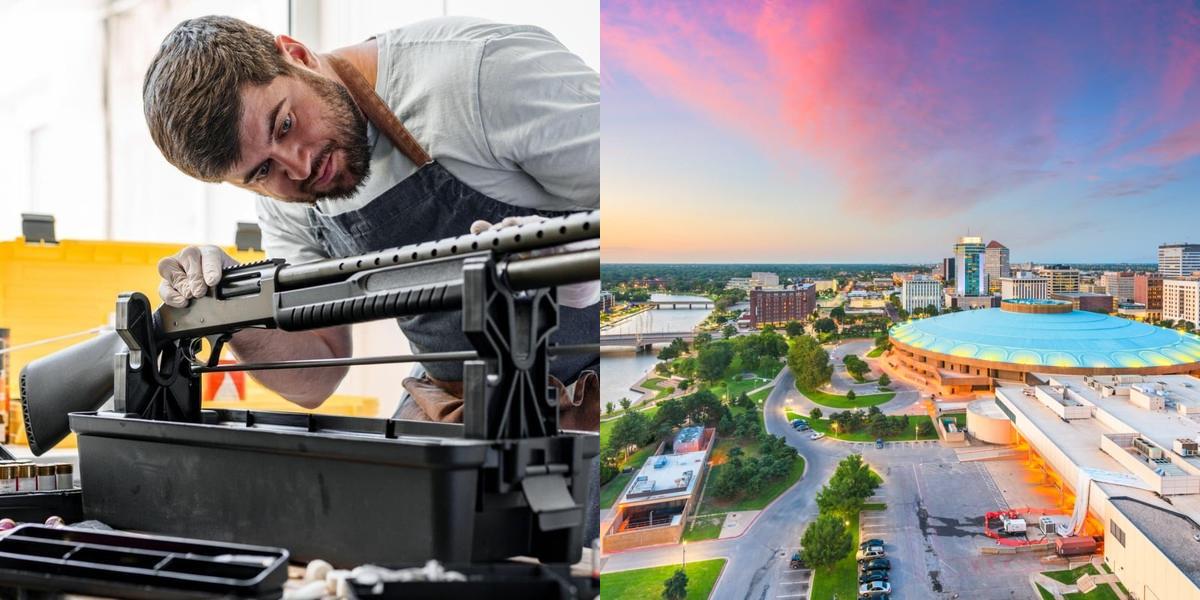How to Become a Gunsmith in Kansas

Gunsmiths are highly skilled professionals responsible for repairing, customizing, and ensuring the safe operation of firearms. If you enjoy working with your hands, appreciate mechanics, and have a deep respect for firearm safety, a career in Kansas gunsmithing could be right for you. This guide details the steps you’ll need to take in Kansas, citing official resources and highlighting practical advice.
Immediate Answer:
To become a gunsmith in Kansas, you generally need a high school diploma or GED, complete a specialized gunsmith training program (6 months–2 years), and obtain a Federal Firearms License (FFL) if you plan to repair or modify firearms professionally.
Career Paths in Gunsmithing
After completing your gunsmith training and obtaining an FFL, you can explore multiple opportunities:
-
Firearm Restoration
Specialize in vintage or antique firearms for collectors or museums. -
Custom Builds for Hunting & Competition
Design or modify rifles, handguns, or shotguns for sport shooters and hunters. -
Firearms Manufacturer or R&D
Work in design, assembly, or testing new firearm models. -
Law Enforcement & Military Armorer
Maintain and service official duty weapons, often with a focus on reliability and safety. -
Independent Business Owner
Open your own gun shop, offer custom engraving, or host firearms-smithing workshops.
Frequently Asked Questions
What degree do you need for gunsmithing?
You don’t need a traditional college degree. Most gunsmiths complete a certificate or associate degree in gunsmithing or mechanical trades. Practical skills and an FFL are critical.
What state pays gunsmiths the most?
States like California and Washington often pay higher average wages (above $50,000). However, cost of living and demand also affect pay.
What is the difference between a gunsmith and an armorer?
An armorer typically focuses on basic maintenance and minor repairs (often for law enforcement or military units). A gunsmith performs more extensive custom work, including design, fabrication, and complex repairs.
What tools do I need for gunsmithing?
Key items include:
- Gunsmith screwdriver set
- Bench vise (with padded jaws)
- Hammers and punches
- Rotary tool (e.g., Dremel)
- Calipers and micrometers
- Cleaning kits and personal protective equipment (gloves, safety glasses)
How do I get my Federal Firearms License (FFL)?
Visit ATF.gov to download ATF Form 7, pay the application fee, and follow background check procedures.
Final Thoughts
Becoming a gunsmith in Kansas is a rewarding path if you enjoy mechanical challenges and have a passion for firearms. By completing a reputable training program, gaining hands-on experience, and securing your FFL, you’ll be ready to launch a gunsmithing career in retail shops, manufacturing settings, or as a self-employed professional.
If you’re ready to turn your passion into a profession, take the first step today and explore the gunsmithing programs near you.
If this article doesn't match what you're looking for, you can check out these other articles:

Justine Tacmo is part of the Growth team at Dreambound. He assists the organization by updating critical information so students receive the most up-to-date information for their desired trade schools. Besides, he has a passion for writing and expresses it through poetry, covering themes of life, love, and mental health, which is also his advocacy.



